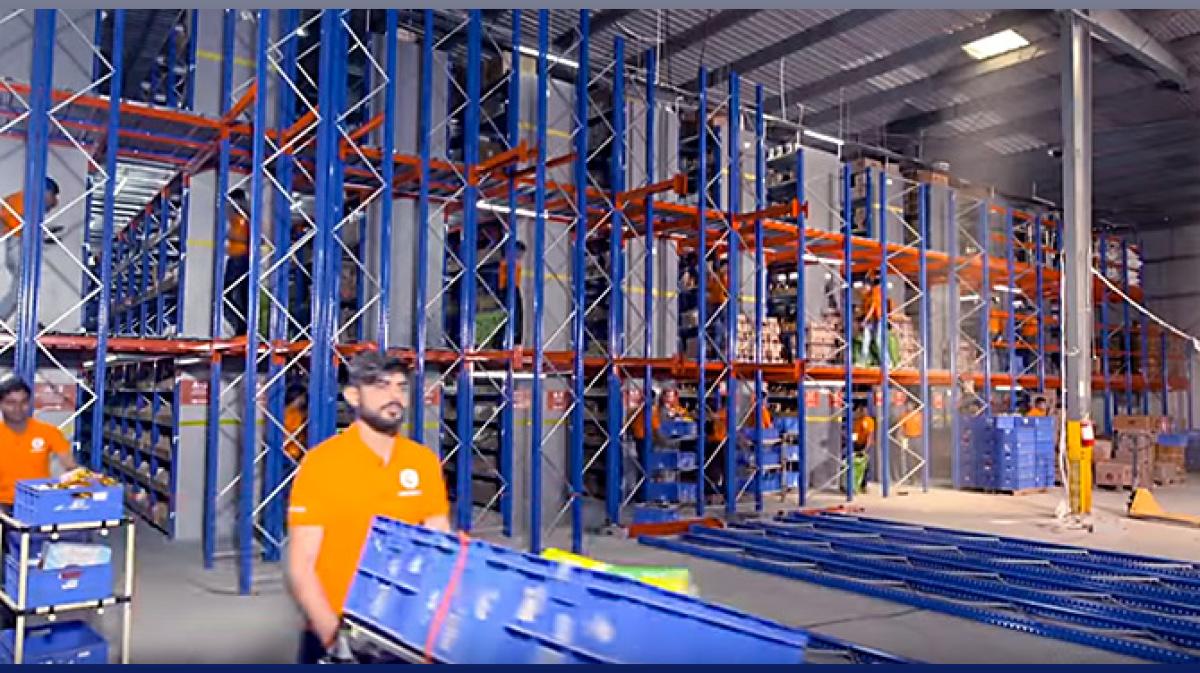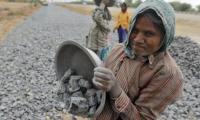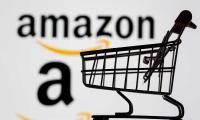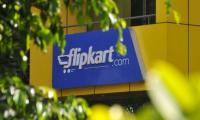FMCG Sales Surge via Quick Commerce in FY24: Report
Leading FMCG firms saw a two-fold rise in quick commerce sales in FY24, driven by consumer preference for hyperlocal delivery. The report highlights the rapid growth of Q-commerce in India and its impact on the FMCG sector.

Photograph: Danish Siddiqui/Reuters.
New Delhi, Oct 7 (PTI) Leading FMCG firms reported a nearly two-fold increase in the share of quick commerce within their total e-commerce sales, and this surge is anticipated to continue, said a joint report by Deloitte and industry body FICCI.
Quick Commerce, also known as hyperlocal delivery, is now reaching around 35 per cent of online sales and has become a preferred channel for urban consumers.
"About 18 per cent of consumers prefer purchasing food and beverage items from Q-commerce channels. The Q-commerce segment has grown by 230 per cent from 2021 to 2023," said the report titled 'SPURring growth in FMCG, retail and e-commerce sectors in India'.
It has already started "cannibalising" traditional online grocery channels such as slotted and next-day deliveries. Now demand for quick commerce and hyperlocal delivery is surging, especially in urban areas, reshaping last-mile logistics.
"The growth in quick commerce is disruptive, re-examining many existing consumption, production and distribution paradigms," it said, adding: "This surge in quick commerce is anticipated to continue as consumers want to continue to purchase from Q-commerce channels."
Now consumers in India are increasingly turning to e-commerce as a preferred channel for purchasing FMCG products.
"With internet penetration rapidly expanding -- projected to reach 907 million users by 2023 -- online platforms now account for 17 per cent of overall FMCG consumption, particularly among affluent and evolved buyers," it said, adding, "This shift is driven by greater convenience, wider product availability and competitive pricing."
Citing the findings of a survey, the report said now consumers tend to favour quick commerce over traditional e-commerce for food and beverages, as these items are often driven by impulse purchases or immediate needs.
In contrast, home, beauty and personal care products are generally more planned purchases, making e-commerce the preferred option in these categories.
Now smaller households with both members working likely appreciate the convenience and speed of quick commerce, which caters to more immediate and flexible consumption needs, it said.
In the overall sector, affluent consumers are shifting towards premium products, and companies are looking to focus on this trend through innovation-led new product development.
"Rural markets are seeing green shoots of consumption growth, and companies are focusing on driving direct distribution reach and habit formation to drive sustainable long-term growth consumption as well," the report said.
Quick Commerce, also known as hyperlocal delivery, is now reaching around 35 per cent of online sales and has become a preferred channel for urban consumers.
"About 18 per cent of consumers prefer purchasing food and beverage items from Q-commerce channels. The Q-commerce segment has grown by 230 per cent from 2021 to 2023," said the report titled 'SPURring growth in FMCG, retail and e-commerce sectors in India'.
It has already started "cannibalising" traditional online grocery channels such as slotted and next-day deliveries. Now demand for quick commerce and hyperlocal delivery is surging, especially in urban areas, reshaping last-mile logistics.
"The growth in quick commerce is disruptive, re-examining many existing consumption, production and distribution paradigms," it said, adding: "This surge in quick commerce is anticipated to continue as consumers want to continue to purchase from Q-commerce channels."
Now consumers in India are increasingly turning to e-commerce as a preferred channel for purchasing FMCG products.
"With internet penetration rapidly expanding -- projected to reach 907 million users by 2023 -- online platforms now account for 17 per cent of overall FMCG consumption, particularly among affluent and evolved buyers," it said, adding, "This shift is driven by greater convenience, wider product availability and competitive pricing."
Citing the findings of a survey, the report said now consumers tend to favour quick commerce over traditional e-commerce for food and beverages, as these items are often driven by impulse purchases or immediate needs.
In contrast, home, beauty and personal care products are generally more planned purchases, making e-commerce the preferred option in these categories.
Now smaller households with both members working likely appreciate the convenience and speed of quick commerce, which caters to more immediate and flexible consumption needs, it said.
In the overall sector, affluent consumers are shifting towards premium products, and companies are looking to focus on this trend through innovation-led new product development.
"Rural markets are seeing green shoots of consumption growth, and companies are focusing on driving direct distribution reach and habit formation to drive sustainable long-term growth consumption as well," the report said.
You May Like To Read
TODAY'S MOST TRADED COMPANIES
- Company Name
- Price
- Volume
- Vodafone-Idea-L
- 11.72 (+ 0.60)
- 35946923
- Spright-Agro
- 0.77 ( -4.94)
- 15184368
- Harshil-Agrotech
- 0.60 ( -1.64)
- 12119486
- Mehai-Technology
- 1.65 ( -4.62)
- 9795340
- AvanceTechnologies
- 1.06 ( -4.50)
- 7136782






